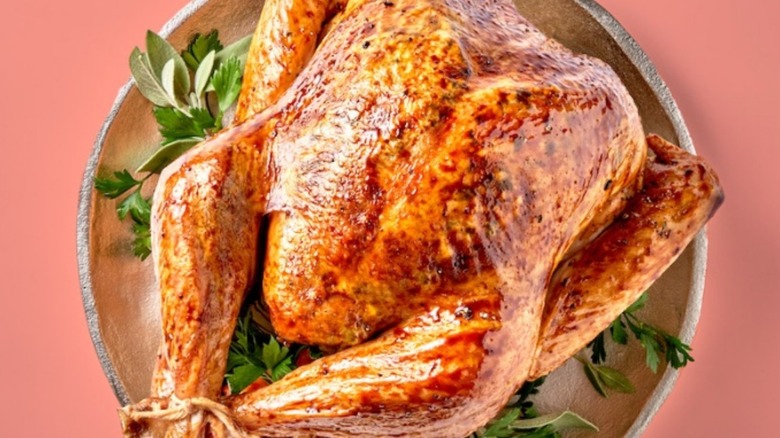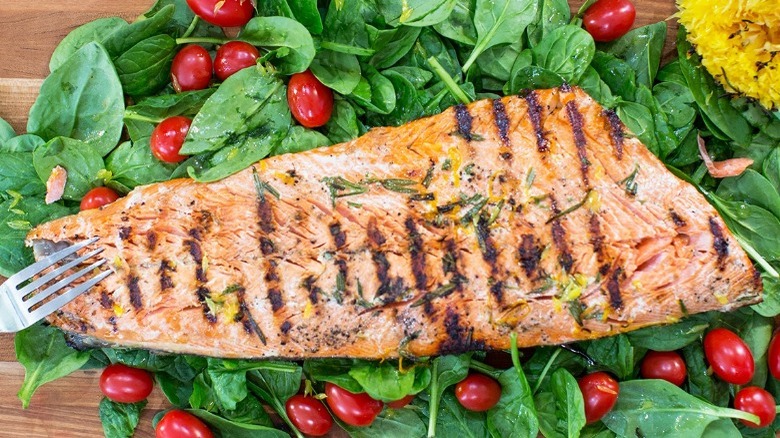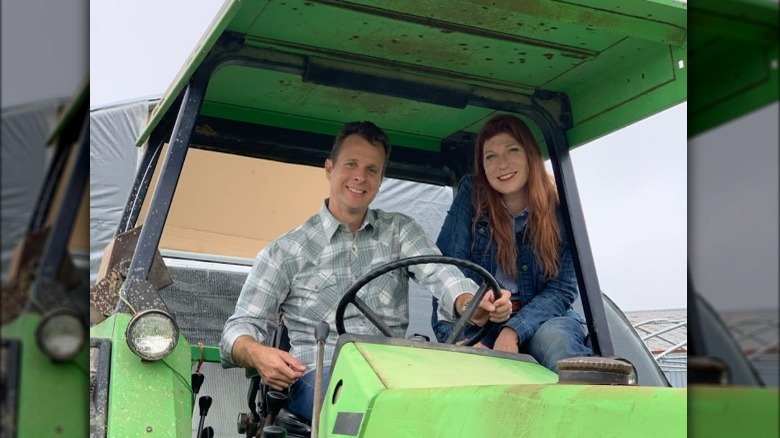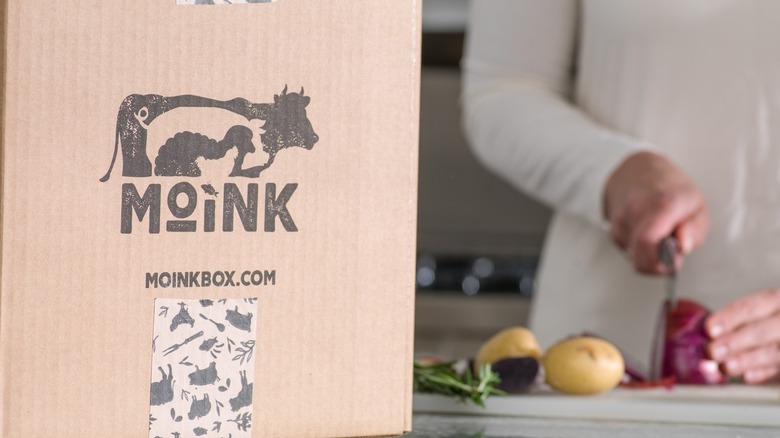What Happened To Moink After Shark Tank?
For 13 years, entrepreneurs have pitched their ideas and businesses to a team of investors on ABC's "Shark Tank," hoping to gain an educated partner and enough money to fund their next step. The team of investors, also known as "Sharks," are self-made moguls looking to help up-and-comers while also ensuring a return on their investment. Typically, the team is made up of Daymond John, Lori Greiner, Kevin O'Leary, Mark Cuban, Robert Herjavec, and Barbara Corcoran, as well as various guest sharks each season.
Subscription box services often do well when presented on the show. One example is Everytable, a service that aims to replace traditional fast-food offerings with nutritious meals for an equally low price. According to Business2Community, the owners, Sam Polk and David Foster, walked into the tank requesting $1 million for 5% equity. Guest shark Rohan Oza bit at the idea for 10% of their company.
Less than a year later, Moink stood up to the challenge, hoping to become the next big meal subscription service.
An ethical approach to meat
Moink founders Adam and Lucinda Cramsey packed up their city life and traded it for a farm, which was a sense of "coming home" after having lived on farms as children. The pair decided that their farm would be organic after Lucinda worked in the organic produce industry while on the east coast. Immediately, Adam began to raise pigs, and it wasn't long until they realized they have friends raising chickens and cows as well.
As self-defined "tender-hearted carnivores," the husband and wife duo, along with these friends, decided to set up a subscription box service to provide ethically produced meat with no additives. The idea evolved into a company named Moink, which is a combination of "moo" and "oink."
Lucinda Cramsey presented Moink on "Shark Tank" in Season 10, episode 15, which aired in 2019, per Shark Tank Recap. She told the sharks her year-to-date sales were $700,000. Though sales were impressive, what concerned the sharks was Moink's margins. At the time, it cost $100 for customer acquisition, while a box sold for $159. Every shark dropped out — except one.
An organic pair
According to Shark Tank Recap, Lucinda Cramsey originally asked for $250,000 for 10% of her business, Moink. After each of the resident sharks dropped out, guest shark and Ring Doorbell founder Jamie Siminoff made her an offer. His offer, which Cramsey accepted, was $400,000 for a 20% stake in her company.
As it turns out, signing a deal with Siminoff was a great move for Moink; Cramsey regarded him as "a better investor than I could have ever imagined. A true pit bull in our fight for the family farm," in a Facebook post. It was also revealed in an Instagram post that Siminoff bought a farm in the fall of 2019.
As for profits, the organic meat company continues to grow. Directly after the episode aired, Moink rose to $3 million in sales (via Shark Tank Recap). Per the Shark Tank Blog, the company made $7.4 million in 2017, and as of 2022, it has a revenue of $74 million.
Moink's move toward expansion
Several years post-Shark Tank, Moink is ever on the moo-ve, onwards and upwards. The business has expanded exponentially from a small-time farming operation involving one couple and their friends. These days, Moink sells meat products that come from over 100 different farms in 20 different states including 11 located in its home state of Missouri (these, presumably, would be the farming friends).
Moink is based in LaBelle, Missouri, population: several (actually only 659 residents, at last count), but its thriving business has necessitated the expansion into a new aggregation facility. Aggregation, in this case, most likely means the collecting, packing, and redistribution of all of the different meat products that come from its numerous farm sources. In a 2019 interview with Ag Funder News, Lucinda Cramsey revealed that the company had been doing its aggregating in the bustling metropolis of Canton (2638 souls, not including cattle), but was in the process of moving to Kansas City. This larger location, she felt, would result in lower shipping costs for Moink subscribers and might also help to facilitate the business' ability to take on new partners and offer an even wider range of Moink products.



